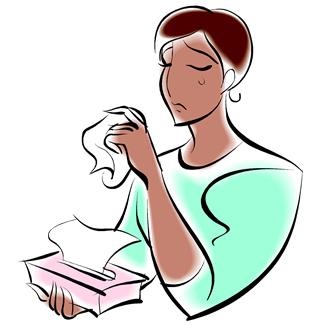 The New York Times highlighted an issue that we don’t talk about much in society in their article On Home Aides and Hidden Grief. Professional caregivers often become close to clients and work with them over the years. A senior caregiver may spend many hours with the person for whom they care and build a strong relationship. This is one of the great things about working as a home caregiver. Our EasyLiving caregivers often mention how they enjoy getting to know clients, and being able to do little things that they learn a client appreciates. Though the relationship between home health caregiver and client is a professional one, it is normal to build some sense of attachment.
The New York Times highlighted an issue that we don’t talk about much in society in their article On Home Aides and Hidden Grief. Professional caregivers often become close to clients and work with them over the years. A senior caregiver may spend many hours with the person for whom they care and build a strong relationship. This is one of the great things about working as a home caregiver. Our EasyLiving caregivers often mention how they enjoy getting to know clients, and being able to do little things that they learn a client appreciates. Though the relationship between home health caregiver and client is a professional one, it is normal to build some sense of attachment.
Naturally, when a client dies (or perhaps the relationships ends if the elder client moves) a caregiver experiences grief. While we acknowledge the grief of family and friends, we don’t talk much about this grief involved in professional caregiving. There are few natural outlets for this grief. Here are some characteristics of professional grief shared by Elizabeth J. Clark, PhD, ACSW, MPH in “Understanding Professional Grief“:
- Professional caregivers are distant mourners.
- The effects of professional grief are hidden and subtle.
- Professional losses accumulate.
- Professional grief may be transformed into other emotions such as anger, anxiety, blame, helplessness, and guilt.
- Professional grief may take the form of a chronic or delayed grief response — one that never seems to come to a satisfactory conclusion.
- Professional grief is a significant cause of burnout.
As a home caregiver, it is important to acknowledge this grief. The job can be stressful and unacknowledged grief and loss can build up to add to caregiver burnout. There is a term, “bereavement overload” which refers to the effect of multiple losses, often with little time in between for a grieving process. In one study done of professional caregivers in a long-term care program (Journal of Pain and Symptom Management, September 2005), 72% of the caregivers were experiencing grief symptoms; those experiencing multiple symptoms had generally experienced more patient deaths and were closer to the patient or had worked with him/her longer.
What can help you with this caregiver grief? Take some time to talk to colleagues or friends about the person you cared for and what you miss about him/her. You can do this without breaching client confidentiality as you don’t have to mention client name or specifics. At EasyLiving, we have a very supportive team who encourage each other. If you worked on a “caregiver team” with colleagues, it can be helpful to share some time reminiscing about the client and saying your goodbyes.
Your administrative team should also be glad to speak with you and listen to your feelings. Be aware of the possible effects of bereavement overload and signs that you are becoming overwhelmed as a caregiver. Reach out to your administrative team to talk through this. Sometimes there are other duties or types of cases you could take on to allow you some recovery. If you have recently lost a loved one, it may be an especially hard time for you to continue on with caregiving and experiencing losses. Make sure you have allowed yourself to grieve and consider attending a grief support group (there are options online now too, for your convenience–check out Griefnet for some options). In Pinellas County, Suncoast Hospice offers a number of groups.
Some caregivers find journaling to be helpful in processing feelings. Writing a small tribute or some memories of a client may help you to acknowledge the person and the loss.
Sometimes families will invite caregivers to the client’s memorial service or otherwise include them in the mourning process. This is a great way to acknowledge the person’s role and the possible loss they are feeling. If your family has a long-time caregiver or other professionals who were deeply involved with your loved one’s care, consider including them in some way. Acknowledging their relationship and what they did for your loved one with some kind words of thanks can go a long way.
Working as a professional caregiver can be a challenging but also a very rewarding profession. Caregivers have the chance to impact clients’ lives and get to know some wonderful and interesting people. Every day at EasyLiving, we see the kind and caring acts of people who serve as caregivers. We created our Inspirational Caregiver Award to celebrate the work of high-quality caregivers. We think it is important to acknowledge the value of caregiving work. If you have any questions or would like more information about working at EasyLiving home care, you can get our application on the Careers link or contact our office.
Looking for top-quality home caregivers for your loved one in Pinellas County? Give us a call at 727-447-5845.







